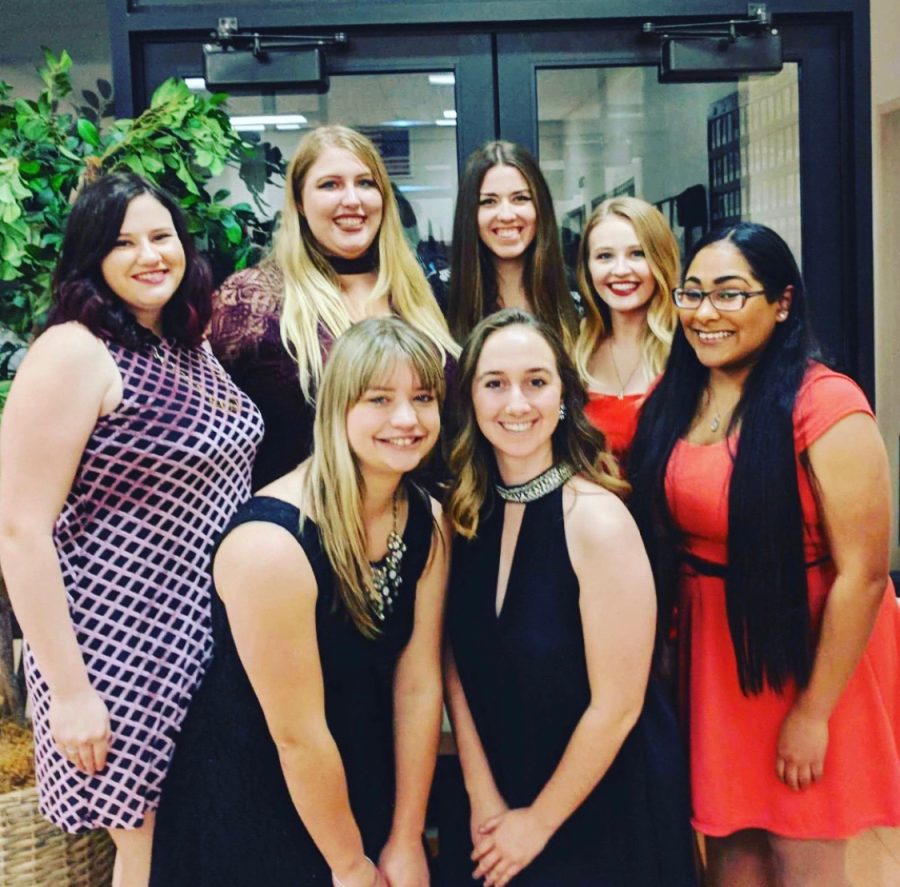Women at Kent State discuss impacts of social media on body image
March 24, 2018
Calla Motsis, a freshman visual communication design major, takes pictures with her friends. These pictures range from selfies to full-body pictures with everyone being side-by-side. She describes her high school friends as “really thin” and “really good looking.”
Little do they know, she is self-conscious when it comes to taking and posting pictures on social media, and she sometimes finds herself posing certain ways to morph her body image.
“I need to see it before anyone posts it,” Motsis said. “I don’t want to get fat shamed on the internet.”
With the impact of social media, some women seek perfectionism and question their body image in comparison with others.
Motsis recalls her time where she had a friend who was a victim of cyberbullying. She was fat shamed and almost took her own life because of it.
“The worst part was … everyone knew she was anorexic,” Motsis said.”Everyone knew that she went through those issues, and then that’s why they fat shamed her.”
Shannon Ciesla, an assistant professor of psychology at Kent State, talked about perfectionism and gave examples of being the perfect student, daughter, sister or significant other.
“A lot of times where we see … perfectionism being highlighted on social media in particular is when it comes to body image,” Ciesla said.
Ciesla said women may find themselves on social media looking at pictures of celebrities or a peer and making comparisons. She also introduced the concept of social comparison, something that teenagers and young adults engage in, whether it’s about body image or a grade on an exam.
“I think it’s very easy to engage in that social comparison and say, ‘Why don’t I get that kind of attention?’ or ‘Why don’t people make those kind of comments on my pictures?’” Ciesla said.
Emily Waldvogel, a senior English major and an intern at the Women’s Center, said she used to feel pangs of jealousy whenever she was on Facebook. She would have thoughts such as, “I wish that could be my life,” or “Why doesn’t my hair look that good?”
Waldvogel speaks on how sometimes when women find themselves comparing themselves to other women, it can lead to competition.
“You want to one-up each other,” Waldvogel said. “This person might have a job, but do they have a job and a boyfriend? Well, I have a job and a boyfriend.”
Waldvogel said instead of being passive aggressive and tearing one another down, women should be bringing each other up.
Social media can create high and sometimes unrealistic expectations. Ciesla said she would speak to teenagers who would bring up these kinds of issues.
“Perhaps what is being put out there — again, because of all those apps and things like that — is this ability to alter your appearance, alter everything about your life that you’re kind of presenting in a certain way on social media,” Ciesla said. “I guess that might very well have a negative impact on those that are frequent consumers on social media.”
Waldvogel said she often uses filters on Snapchat to hide her acne.
“When we have women who already look good who are then being enhanced to look even better, you’re like, ‘Why can’t that be me?’” Waldvogel said. “And it definitely sets all these unrealistic standards that it’s hard to escape from.”
Gershon Harrell is the diversity reporter. Contact him at [email protected].












